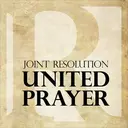
00:00
00:00
00:01
Transcript
1/0
All right, it is good to be back with you guys today and be able to go back to Psalm 40. So if you have your Bibles, you want to look there real quick. I have a couple more times that I'm able to speak with you, and I just want to kind of continue with the Psalm 40 where we started. And just want to say from my heart as a pastor to you, Thank you so much for making this a priority in your life. Prayer is absolutely imperative for us. I'm reading a book by Martin Lloyd-Jones called Revival, and one of the statements that he has made in that book is that no revival ever started or was enjoyed without, first of all, beginning with prayer. Prayer is absolutely essential for us. It's needed for me in my life. I tend to be an early riser, so way early in the morning before my wife gets up, before the light comes up, I'm able to enjoy time with the Lord. But it's imperative that we always hold on to this the rest of our lives, how important communication with God is in our lives. So back to Psalm 40, and we went through the section that waiting patiently for the Lord, and He inclined unto me. And that's the basis for what we are at. And the next phrase, and heard my cry. Just, I can't go back there, but just to have that verse in our lives, that the almighty God who created everything, all that we know, all that we understand, everything that we see, he created it all, he inclines unto us. That's just a phenomenal statement. And yet he does. He listens and loves to hear us speak to him. So we went through being out of the miry clay, and then we went to verses four and five. Blessed is the man who makes the Lord his trust. Many are your wonderful works. And so today I would just want to go through six, seven, and eight, verses six, seven, and eight. And I just want to look at this because it's an odd passage. It's an odd thing. But let's just read through it. an offering you did not desire. So this is David, who is a Hebrew son and has gone to Jerusalem. He's about two to three miles away from Jerusalem, living in Bethlehem. But he goes to Jerusalem every year, multiple times. And he sacrifices, as even as a child, he sacrifices offerings of the Lord. And yet here, burn offerings and sin offerings, and yet here he says, sacrifice an offering you did not desire. Now look at the last portion of that verse, burn offerings and sin offerings you did not require. Wait a second! Hold on! Hold on! God required sacrifices in the Old Testament. Okay? He required burnt offerings. He required sin offerings. But David is getting to a very specific and particular aspect. Now read the phrase in the very middle of 6. "...sacrifice and offerings you did not desire, my ears you have opened." Well, this is a referral back to the Old Testament. where God said that a Jewish slave could not be had longer in employment, not wouldn't be employment, but in slavery, I guess I would say, for six years. In the seventh year, he was given his freedom. So they could only use Jewish slaves for six years, and then they had to return them home, and they had to go home and be with their family. So what does this mean here? If this slave really loved his owner, really appreciated, God made a way for that slave to say, I don't want to work someplace else. I don't want to go do something else. I want to work for you. And so when that slave said that, what they would do is they would take that slave and take him to the doorpost, and they would put his ear on the doorpost. and they would pierce his ear. And then they would put a gold ring or a ring of some kind into the ear and everybody that saw that pierced earring said, this is a slave by choice, not by requirement. And so what Paul or what David is saying here is sacrifice and offering you didn't desire, but offering and sin offering you didn't require, you wanted submissive service. You wanted willing, volitional choice service. You wanted the person to voluntarily serve you, not forced, not required, and need to be a willingness of the heart. So my whole question in all of what we're looking at in 6-7-8 is, what does God want? Brethren and sisters, what does God want from you and me? What does he desire from us? Does he desire sacrifice? Does he desire given money in the offering? Does he desire all of those things? And what David gives to us in this passage, in these three verses, is that God desires a willing, serving heart. But more than that, let's go in verse seven. "'Cause then I said, behold, I come in the scroll of the book it is written of me. I delight to do your will, O my God, and your law is within my heart. So there's two more things that are given here that God desires. First of all, he wants that submissive, willing heart of service. And then he writes down a passage that the Lord records in the New Testament. I delight to do your will, O my God, because your law is within my heart." Now, I just want to take you to two or three passages, because I've got to be done here real quick. But remember 1 Samuel chapter 15 and verse 22. 1 Samuel chapter 15 and 22, Samuel is speaking. He's talking to Saul. Saul said, hey, I did everything God wanted me to do. Saul says, as the Lord, as great delight in burnt offering and sacrifices, as in obeying the voice of the Lord. Behold, to obey is better than sacrifice, and to heed than the fat of lamb. So here Samuel is teaching the same thing. God desires, as I said at the very beginning here, God desires a submissive spirit, a willing, obedient, submissive spirit. And then it says in verse eight, I delight to do your will, O my God. And in just a couple of verses over, A couple of chapters over, Psalm 51 verse 16. It is said again, for you do not desire sacrifice or else I'd give it. You do not delight in burnt offerings. Get this, the sacrifice of God is a broken spirit. A broken and contrite heart. These, oh God, you will not despise. And I could take you to the New Testament in Matthew chapter 26, verse 39. Well, here we have the Son of God bending his knee to his heavenly Father and saying, I really, really would love for you to take this cup away from me. And that was the desire of his heart. And then he said, yet not my will. but your will be done." That's submissive servant obedience. And that all comes in the last phrase of verse 8, and your law is within my heart. Brothers and sisters, that's transformation. And that's what God is doing in all of our lives by our prayer, by our study of the Scripture, by our loving one another. God transforms us into the image of Jesus Christ, and in so doing, takes the heavenly, divine Word of God, the Law of God, which is Jesus Christ, I would say, and places that within our hearts, and all of a sudden, we are being transformed into the very image of God. That's what God wants. God wants us to be transformed into the very image of God, and that occurs by communion with God. There's a phrase that I give to my church all the time. Behold, and you will become. Behold brings becoming. What you look at, you will become like. And so all of this, 6, 7, and 8 deals with that. As we behold Jesus Christ, we become like Jesus Christ. And that's what God wants. He wants to transform all of us into the same image. He says this in 2 Corinthians 3.18, being transformed into the very same image, even as by the Spirit of God. So as we pray today, let us always remember that our goal is not to sacrifice the time. Our goal is to enjoy. As David said in Psalm 27.4, the one thing that I desire is to behold the beauty of God. Blessings to you all.
What Does God Want?
Series United Prayer Meditations
| Sermon ID | 42252320216587 |
| Duration | 10:39 |
| Date | |
| Category | Prayer Meeting |
| Bible Text | Psalm 40:6-8 |
| Language | English |
Documents
Add a Comment
Comments
No Comments
© Copyright
2025 SermonAudio.


